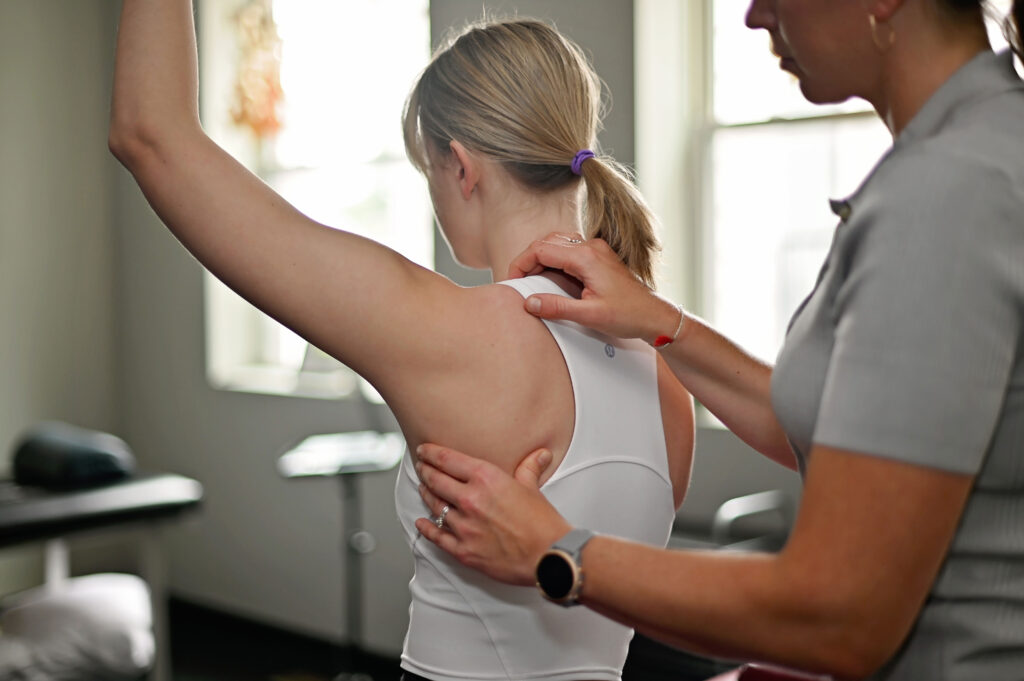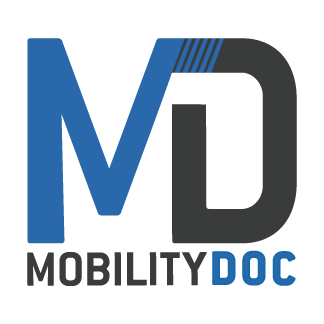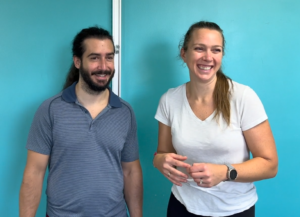Whether it’s a tear or tendonitis, a rotator cuff injury is no joke. Our shoulders are used in almost everything we do, so when this area of the body has pain you can’t ignore it. Studies show that 1 in 4 adults deal with shoulder pain at some point in their life (Linaker & Walker-Boone, 2015). Many shoulder injuries occur over time while others are from direct contact. So which category do you fit into? Today we are breaking down what the rotator cuff is, common causes of injury, symptoms, and treatment solutions to help you recover.
What is the Rotator Cuff?
The rotator cuff is a group of muscles and tendons that help keep the ball of the humerus (upper arm bone) in place with the scapula (shoulder blade). They are able to do this by surrounding the front, back and top of the joint. When you move your arm, the muscles and tendons surrounding the joint contract which is what keeps the joint in place and provides stability.
Common Causes of Injury
So why is that important? Most of us either think or know that we have bad posture. Some of that bad posture is linked with our upper back, middle back, neck, and shoulders. When we allow ourselves to slouch forward or sit poorly. Unless we are being very mindful, while doing computer work our shoulders become more rounded and forward. That means the ball of the humerus starts pushing forward into the rotator cuff causing friction, inflammation, and strain. Other than posture, some everyday activities can cause problems. This includes things like slipping on ice and even getting yanked while walking a dog (make sure Fido doesn’t pull!). Careers like construction, carpentry, and house painting all include repetitive overhead motions that can also contribute to overuse injuries.

From a sports perspective, lots of sports involve throwing, overhead movement, and even contact. Repetitive movements can be another culprit of rotator cuff problems. From overuse to improper technique you have to be careful you’re not putting yourself in harm’s way. As for the contact portion, you can’t always help it. If you are hit with the right force it may cause injury.
Rotator Cuff Injury Symptoms
Injuries associated with the rotator cuff can be anywhere from minor swelling to full blown tears. What does a torn rotator cuff feel like? Here are the main symptoms associated with tendinitis and tears:
Tendinitis:
- Pain and swelling of the shoulder
- Limited range of motion
- Potential weakness in the arm
If left untreated this can turn into a chronic condition or develop into a tear.
Tears:
- Feeling a dull ache or pain in the shoulder. Often when resting and will disturb sleep at night
- Pain or difficulty combing your hair and or reaching behind your back
- Weakness when lifting/rotating your arm
- A crackling sound/sensation
Treatment Options

- Therapy – Typically our preferred method to take care of things, physical therapy can help regain mobility of the joint and re-pattern the muscles to hold the joint in the correct place. As long as your diligent with completing your exercises this leaves lasting results.
- Shots – Kind of like a bandaid, this is not a simple quick fix. A shot will help take off the initial edge of pain but won’t fix your issue. You’ll need to still do exercises. Even though it helps initially, shots deteriorate the tendons of the joint. That means if you’ll need surgery down the line it’s less likely to be successful. Be mindful when using this type of treatment.
- Surgery – There are many different types of surgery for a rotator cuff including, arthroscopic tendon repair, shoulder replacements, a tendon transfer, and open tendon repair. Each one of these is different and would depend on the severity and specific case you’re dealing with. You will also need to do some therapy afterwards to help rehabilitate.
Recovery time for a rotator cuff injury will vary depending on the severity and course of action you take. Everyone is different and as such heals differently. Mild issues can heal within about 4-6 weeks. Major tears and post surgical recovery can take anywhere from 6 months to 1 year. Either way, you want to take the necessary steps to make a full recovery. Not completely healing opens you up to re-injuring the area which nobody wants!
Preventative Measures
At Mobility-Doc we are all about injury prevention and staying ahead of issues. In order to protect ourselves it’s important we are aware of how our bodies move. We do this by putting intention behind each movement. Because we love helping our community get back to doing what they love, we have a variety of ways to do so! This includes our current 10 Minute Mobility challenge! All the details were covered it in last week’s blog, so if you missed it, read it now! This 10 Minute Mobility Challenge is perfect for preventing rotator cuff injuries because it improves the position of how you hold shoulders. That translates into improving your posture and lessening neck and even back pain. (Can’t wait to start? Go straight to the video here!)
Now, I know I can’t leave you hanging with just last week’s exercises… That wouldn’t be us! If you’re looking for a great exercise to compliment our 10 Minute Mobility Routine, try doing some twisted angels. This exercise will help open your chest while encouraging external rotation in your shoulder! This is part of what you need for unrestricted overhead mobility.
Watch Our Twisted Angels Video Here!
Even though you have some tools to improve your mobility, if you feel as though you’re dealing with a rotator cuff injury don’t hesitate. Talk to a trusted medical professional to start diagnosing your issue right away. We hope you take advantage of our preventative tips and stay ahead of those pesky injuries! Mindfulness will help lead you to injury prevention. Stay healthy so you can stay active!
Not a Rotator Cuff Injury?
Are you recovering from a different kind of shoulder injury? Maybe one just feels weaker than the other. Try our MDRx Shoulder program! It’s a 4 week program that systematically improves your flexibility, stability, and strength to even out your asymmetries and get you back to 100%!
References:
Linaker, C. H., & Walker-Bone, K. (2015). Shoulder disorders and occupation. Best practice & research. Clinical rheumatology, 29(3), 405–423. https://doi.org/10.1016/j.berh.2015.04.001






